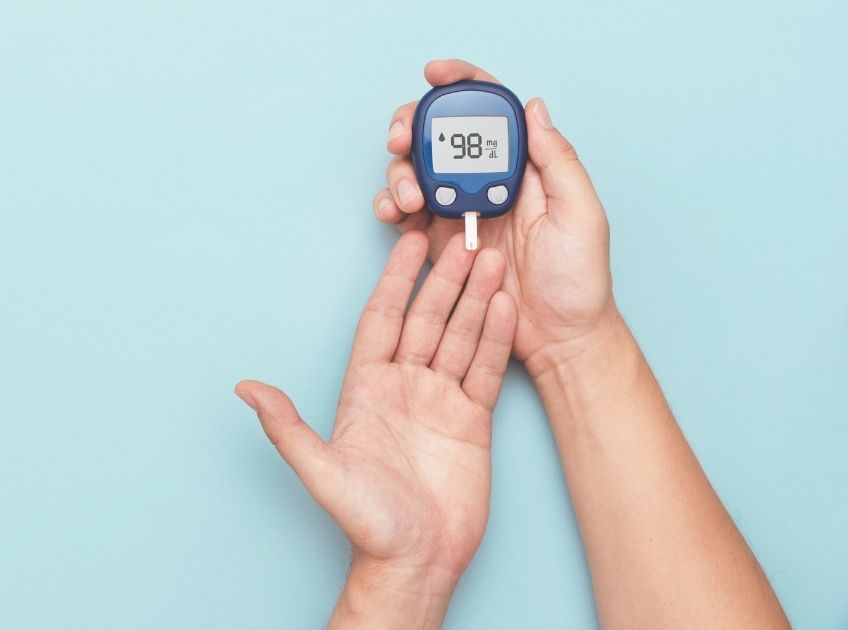
Important: This article is for informational purposes only. Please read our full disclaimer for more details.
For many people living with diabetes, managing blood sugar levels is a daily priority. Diet plays a crucial role in this, and beverages are often overlooked. Among the healthiest options, tea stands out—not just as a warm, comforting drink, but also as a source of natural compounds that may help support metabolic health.
Tea has been consumed for centuries for its therapeutic value. Today, scientific studies are exploring how different teas influence glucose regulation, insulin sensitivity, and inflammation—three major factors linked to diabetes management. Whether you prefer herbal brews or traditional teas from the Camellia sinensis plant, certain varieties may offer meaningful benefits when added to your daily routine.
The Science: How Tea Influences Blood Sugar Control
Tea affects blood sugar in several ways, depending on the type. Most teas are rich in antioxidants such as polyphenols, catechins, and flavonoids (1). These compounds can support metabolic health by:
- Improving insulin sensitivity: Some teas help cells respond better to insulin, allowing glucose to enter cells more efficiently.
- Slowing carbohydrate absorption: Certain herbal teas mildly delay digestion and sugar absorption, helping prevent post-meal sugar spikes.
- Supporting weight management: Tea can promote metabolism and may help reduce cravings.
- Reducing inflammation: Chronic inflammation is a major contributor to insulin resistance.
While tea is not a replacement for medication or professional medical guidance, it can complement diabetes management when paired with a balanced diet and healthy lifestyle.
Top 7 Teas That Support Healthy Blood Sugar Levels
1. Green Tea
Green tea is often recommended for diabetes due to its high concentration of catechins, especially EGCG (epigallocatechin gallate). These antioxidants may improve insulin sensitivity and reduce fasting blood sugar levels. Some studies suggest green tea consumption is linked to a lower risk of developing type 2 diabetes (2).
2. Black Tea
Black tea offers strong polyphenols known as theaflavins and thearubigins. These compounds may help reduce blood sugar spikes after meals. Regular consumption is also associated with improved metabolic markers, making it a safe and accessible choice.
3. Cinnamon Tea
Cinnamon has become well-known for its potential role in glucose control. Some research suggests cinnamon may mimic insulin activity and help lower fasting blood sugar levels (3). Cinnamon tea is particularly beneficial because it avoids the calories and sugar sometimes found in cinnamon-based foods.
4. Ginger Tea
Ginger is widely used for digestive and antioxidant benefits, but it also has potential antidiabetic properties. Ginger tea may help reduce insulin resistance and support healthy inflammation levels. It’s also great for people with diabetes who struggle with nausea or poor digestion.
5. Hibiscus Tea
Hibiscus is naturally tart and rich in antioxidants, especially anthocyanins. These compounds support heart health—important because people with diabetes are at higher risk of cardiovascular issues. Some studies also show hibiscus tea may modestly reduce blood sugar levels.
6. Chamomile Tea
Chamomile is more than a calming bedtime drink. Research indicates it may help reduce HbA1c levels and prevent oxidative stress-related damage to pancreatic cells. Its gentle nature makes it suitable for regular use.
7. Rooibos Tea
Rooibos is caffeine-free and packed with aspalathin, a unique antioxidant studied for its potential impact on glucose regulation. Early research suggests rooibos may help reduce insulin resistance and protect against metabolic disorders.
Possible Risks and Precautions to Keep in Mind
While tea is generally safe, people with diabetes should consider:
- Avoid sweeteners: Adding sugar, honey, jaggery, or sweetened creamers can raise blood glucose.
- Watch caffeine levels: Excess caffeine (from black, green, and oolong teas) may temporarily increase blood sugar in some individuals.
- Herb-drug interactions: Herbal teas such as cinnamon, ginger, or hibiscus may interact with blood-thinning medications or diabetes drugs.
- Allergies and sensitivities: People with plant allergies should introduce new herbal teas cautiously.
- Moderation is key: Drinking excessively strong tea may cause digestive discomfort or interfere with nutrient absorption.
- Always discuss major diet changes with a healthcare provider, especially if you’re on medication for blood sugar control.
What Research Says: Evidence Behind These Tea Benefits
Several studies support the potential role of tea in diabetes management:
- Green tea: Research published in nutrition journals shows EGCG may enhance insulin sensitivity and reduce fasting glucose levels (2).
- Black tea: Studies indicate theaflavins help regulate post-meal glucose spikes by improving carbohydrate metabolism (4).
- Cinnamon: Multiple clinical trials suggest cinnamon supplementation may lower fasting glucose and improve HbA1c in some individuals (3).
- Chamomile: A study from the University of Toyama found that chamomile helped reduce oxidative stress and HbA1c levels in participants with diabetes (5).
- Rooibos: Early laboratory studies on aspalathin show promising effects on blood glucose regulation, though more human research is needed (6).
While not all results are conclusive, the consistency of findings highlights tea’s potential as a supportive dietary tool.
Frequently Asked Questions (FAQ’S)
1. Can tea replace diabetes medication?
A. No. Tea can support better blood sugar control, but cannot replace prescribed medication or professional medical advice.
2. How many cups of tea should a person with diabetes drink per day?
A. Most studies consider 2–3 cups daily safe and beneficial, but this varies based on caffeine tolerance and individual health.
3. Is it safe for people with diabetes to drink milk tea?
A. Milk tea is safe only if prepared without sugar. Traditional milk teas from cafés usually contain high amounts of sugar that can cause glucose spikes.
Tea can be a simple, nutritious addition to a diabetes-friendly lifestyle. With its rich antioxidants and metabolic benefits, the right tea can support better blood sugar control, reduce inflammation, and even contribute to overall well-being. Whether you prefer calming chamomile, energizing green tea, or caffeine-free rooibos, incorporating tea into your daily routine can be both enjoyable and beneficial.















